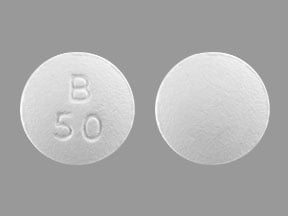
Bicalutamide Coupons & Savings Card – Discount Prices from $40.79
Generic for: Casodex
My prescription
Edit
50MG, Bicalutamide (90 Tablets)
Select pharmacy

CVS
$44.91
COUPON PRICE
Walmart
$40.79
COUPON PRICE
Albertsons
$51.37
COUPON PRICE
Walgreens
$53.55
COUPON PRICEBicalutamide savings card
Show this card to your pharmacist
Walmart
$40.79
BIN
ID
PCN
GRP
019876
LH3A2EA28E
CHIPPO
LHX
Powered by
More prescriptions for prostate cancer
More prescriptions for prostate cancer
Price history for Casodex (brand) & Bicalutamide (generic)
90 Tablets, 50MG
Average retail price for Casodex
Average retail price for Bicalutamide
Average SaveHealth price for Bicalutamide
Our price history data is based on aggregated prescription data collected from participating pharmacies in America. Our prescription data updates daily to reflect the latest price changes. If you notice a missing data point, it means there wasn't sufficient data available to generate a monetary value for that date.
We analyzed Bicalutamide prices for (50MG, 90 Tablets) over the last 12 months. The average retail price was $118.73, while the average price using the SaveHealth discount card was $42.61. That's a savings of approximately 64.11% when using our Bicalutamide coupon.
Compared to the generic version, Casodex had an average price of $3878.05 over the same time period. With the SaveHealth savings card, Bicalutamide is 98.90% cheaper on average than Casodex.
*Retail prices are based on pharmacy claims data, and may not be accurate when we don't have enough claims.
Bicalutamide dosage forms
Dosage Quantity Price from Per unit 50MG 90 Tablets $40.79 $0.45 50MG 1 Tablet $2.85 $2.85 50MG 30 Tablets $13.10 $0.44 50MG 100 Tablets $44.33 $0.44 50MG 500 Tablets $129.70 $0.26
| Dosage | Quantity | Price from | Per unit |
|---|---|---|---|
| 50MG | 90 Tablets | $40.79 | $0.45 |
| 50MG | 1 Tablet | $2.85 | $2.85 |
| 50MG | 30 Tablets | $13.10 | $0.44 |
| 50MG | 100 Tablets | $44.33 | $0.44 |
| 50MG | 500 Tablets | $129.70 | $0.26 |
